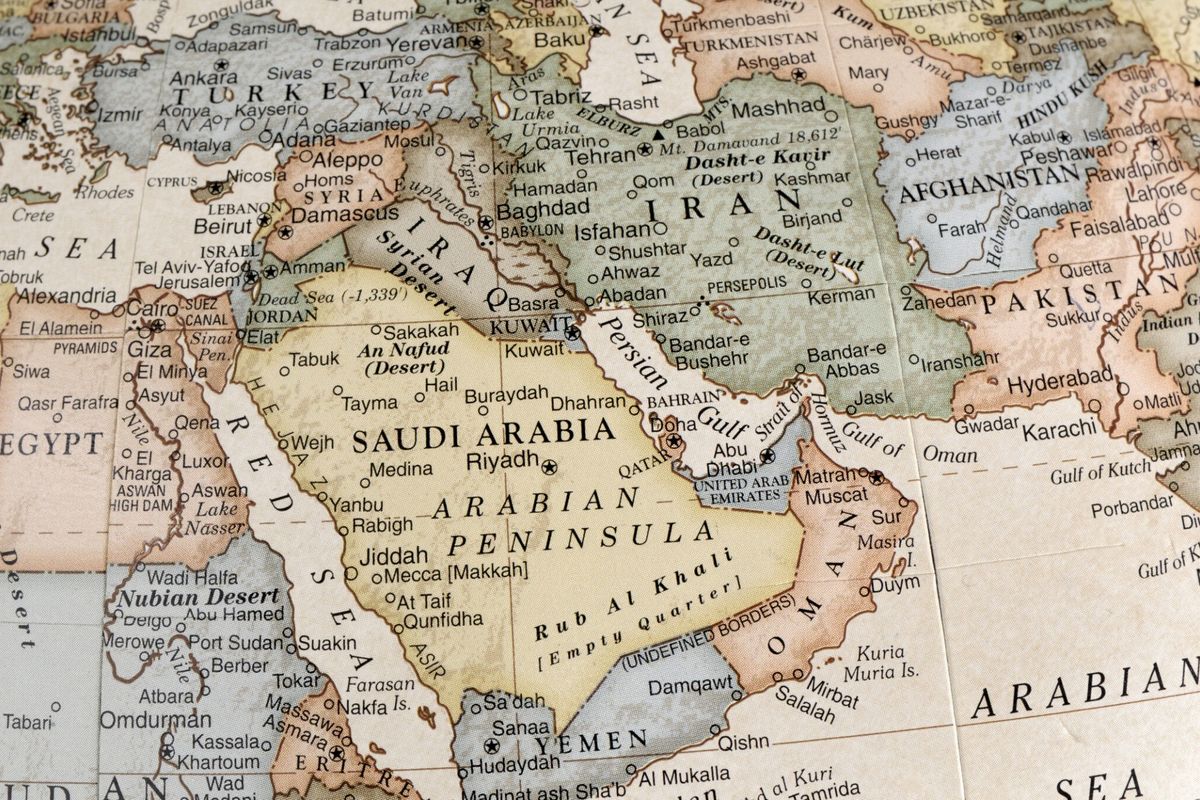The ongoing dispute between Qatar and its neighbors – Saudi Arabia, Bahrain, Egypt, and the United Arab Emirates – has thrown the U.S. into a difficult situation. U.S. President Donald Trump has reaffirmed his support for Saudi Arabia’s policies, but at the same time has continued to work with Qatar, which houses the largest U.S. military base in the Middle East. These events have essentially led to the crumbling of the Gulf Cooperation Council (GCC) as well as a more influential role for Iran in the region. The Cipher Brief’s Bennett Seftel spoke with Emile Nakleh, Cipher Brief expert and a former member of the CIA’s Senior Intelligence Service about the U.S. involvement in the Qatar feud and whether tensions could further boil over.
The Cipher Brief: It seems as though Qatar and the Gulf countries that severed ties with it are at an impasse with neither side bending towards the other. Do you expect any reconciliation or additional confrontation in the short term?
Emile Nakhleh: The Saudi-Qatari feud is at an impasse with little hope for an early resolution. The Saudi Crown Prince and soon to be King, Muhammad bin Salman, and his counterpart, the UAE Crown Prince, Muhammad bin Zayed, are not interested in reconciling with the ruler of Qatar whom they view as an upstart. Tribal feuds, especially those that combine personal vendettas and the struggle for power, are rarely resolved quickly.
On the contrary, it's possible that Saudi Arabia and the UAE might resort to force, including attacking Qatar, under a trumped up threat to their national security or sovereignty that is supposedly emanating from Qatar, with the goal of deposing the Qatari ruler. Such an attack would be preceded by secret talks with one or more members of Qatar’s ruling Al-Thani family who would be amenable to replacing the current ruler, Emir Tamim.
TCB: Has Iran taken advantage of this situation to build stronger ties with any countries in the region?
Nakhleh: As a regional power, Iran has always taken advantage of inter- and intra-Arab conflicts to further its goals and expand its influence in the region. In addition to its strong economic relations with Qatar (they co-own one of the largest off-shore gas fields in the world), Iran has maintained good relations with Kuwait and even stronger relations with Oman – two GCC members that do not support the Saudi-UAE economic and military blockade of Qatar.
Iran is continuing its robust military support of Bashar al-Assad’s regime in Syria, expanding its political and economic involvement in Iraq, and developing deeper trade and diplomatic relations with Turkey. As Saudi Arabia continues to be bogged down in its ill-conceived and failing war in Yemen, Iran is expanding its outreach to regional states and globally.
TCB: The U.S. and Kuwait have both attempted to mediate the dispute – with little visible success. Are either of these parties effective mediators? Why or why not?
Nakhleh: Kuwait has tried to mediate the conflict to no avail. During his recent visit to Washington and meeting with U.S. President Donald Trump, the Kuwaiti ruler, Sheikh Sabah Al Ahmad, was hoping President Trump would publicly endorse Kuwait's reconciliations efforts. That didn't happen. The Kuwaiti Emir concluded that Washington's attitude toward the GCC feud was confused and lackadaisical, and wasn't even sure that Trump was interested in saving Tamim's rule.
TCB: It seems that the U.S. has managed to stay neutral in this conflict and still maintains ties with Qatar as well as its other Gulf allies. How has this crisis impacted U.S. relations with its Gulf allies?
Nakhleh: The U.S. hasn't truly stayed neutral in the Saudi-Qatari conflict. From day one, President Trump sided with Saudi Arabia in its campaign against Qatar. Although U.S. Secretary of State Rex Tillerson has urged the parties to reconcile their differences, President Trump has been noticeably cool toward Qatar and has accepted the Saudi-UAE bogus charges against Qatar at face value. Washington continues to maintain diplomatic and military ties with Doha but not much more beyond that. By contrast, Western European capitals have been more critical of the Saudi-UAE position than Washington.
TCB: Will Qatar return to being a full-fledged member of the GCC or has that bridge been burned?
Nakhleh: For all intents and purposes, the GCC has fallen apart. As an organization, the GCC, in reality, has been more hype than a collective functioning organization. Even as an organization, it's hanging by a thread.
After evicting former Iraqi ruler Saddam Hussein from Kuwait in 1991, there was much hope both regionally and internationally that the GCC would maintain the unity it displayed during that conflict and would continue to function as a regional collective organization. Washington quickly realized in the early 1990s that its relations with the GCC could only work if they were based on contacts with individual member states.
This is not the first time the Saudis have undermined the GCC. Right after the GCC was founded in 1981, the Saudis attempted to control the organization using the spurious claim that as the big sister within the GCC, Riyadh was first among the other six family-ruled members and therefore should have the final say on relations with neighboring states and globally. Qatar, who bucked the Saudi tide and was punished for it, seems to have lost interest in the GCC as an organization and will strike out on its own.
TCB: What does the U.S stand to lose if this rift continues or if this crisis can’t be resolved?
Nakhleh: The longer the crisis continues, the greater the threat to American interests in the region. Iran, Turkey, Russia, and China will use the crisis to boost their relations with Qatar and other states opposed to Saudi ambitious adventurism in the Gulf and the continued bullying of Qatar. More and more people within Saudi Arabia and regionally are becoming resentful of the Saudi Crown Prince's power grab, unbridled ambition, and ill-conceived policies in Yemen and elsewhere in the region.












